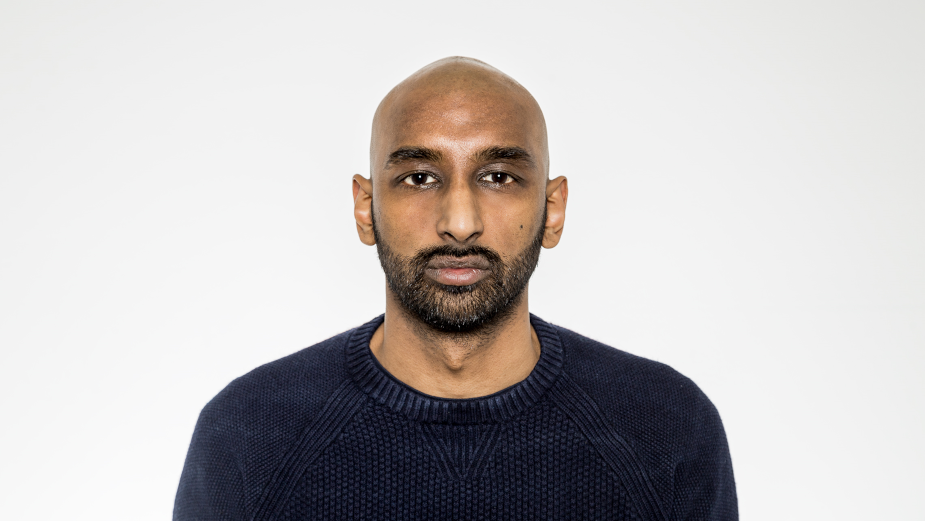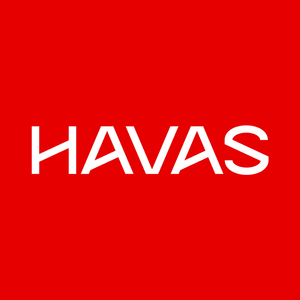
Planning for the Best: Farzaam “Faz” Ahmed on the Comradery of Creative Process

Farzaam "Faz" Ahmed is a director of strategic planning at Havas Düsseldorf, where he is responsible for guiding Reckitt’s home brands Finish, Vanish and Airwick, as well as Volvo's digital work. He has worked at agencies including Proximity WorldWide and BBDO and has worked on iconic global brands such as Samsung, GSK, MARS, Continental and Ford, producing work for European and MENA markets. This diverse experience has in-turn fuelled an interest in consumer led disciplines including brand strategy, consumer journeys and CX.
LBB> What do you think is the difference between a strategist and a planner? Is there one?
Faz> In the past, there was a difference (about which are many good books), but today they are often no longer separate roles. Strategists and planners have merged in title and responsibilities to become one and the same: 'strategic planners' who now detail plans to solve business problems in creative ways, through advertising that connects with consumers.
But beyond this convergence we are also seeing a continued evolution that sees strategic planners integrating new specialisms into their skillset, with the exponentially expanding digital universe giving rise to new channels, experiences, data and so on. Strategic planners now, as ever, need to be a jack of all trades, with knowledge of brand, media, digital, insight, culture, etc., you name it.
LBB> And which description do you think suits the way you work best?
Faz> As said, I am both, but like most people have my favourite elements and strengths. For instance, brand and consumer experience seem to be areas I tend to gravitate to most.
LBB> We’re used to hearing about the best creative advertising campaigns, but what’s your favourite historic campaign from a strategic perspective? One that you feel demonstrates great strategy?
Faz> There are so many great campaigns, but I grew up in the golden age of TV advertising in the UK and saw so many iconic ads recalled the world over, even today. The one that I still get goosebumps from is a Tony Kaye ad for Dunlop tyres 'Tested for the unexpected'. It is a great example of how creative thinking can take a seemingly standard product with a seemingly unremarkable functional difference and make it compelling with the most extreme metaphors you can think of. I love that it doesn’t reveal its purpose until the end and treats the viewer as smart enough to understand the reason for the trip they have just been on.
It’s probably also a good example of a clear strategy that created room to develop truly unexpected results. But it is also very much a product of its time, and the reality is this type of more drawn-out reveal is simply not the way the ad world and consumers work today.
LBB> When you’re turning a business brief into something that can inform an inspiring creative campaign, do you find the most useful resource to draw on?
Faz> Usually, in my own experience, I draw from previous projects and mentors, as well as other brands. It’s always a good source of inspiration to see how other brands, from across different sectors with similar problems dealt with similar problems, not to copy but to use as a start point to creating your own bespoke solution. It’s also worth creating maintaining a database of useful tools and presentations templates you create so that you can then quickly find and adapt resources you already have quickly.
Another source of inspiration are cultural refs I feel fit the problem I am dealing with. For me, these often come from things I am a fanatic of such as movies, music, and sports stars/events – the more niche and weirder the better. Why? Because movies, music, etc., often provide great insights, tensions, and metaphors to help explain your idea in smart, simple, relatable and engaging ways. Watching a clip from Fight Club or a comedian like Bill Burr is likely to say what you want in a more entertaining and relatable way than a slide of academic text.
And finally design books. If you get time to these can help with the presentation of a brief, which as we all know is key. So lay outing and content composition is a great thing to help make your work memorable (I especially recommend “Grid systems in graphic design”).
LBB> What part of your job/the strategic process do you enjoy the most?
Faz> Working with creatives, brainstorming, deconstructing the brief, the consumer, the challenge, the proposition, and finding that insightful nugget to fuel the main creative idea. It usually takes ages, requires going in a lot of circles, but when you do it together the sense of achievement is great. This is a team sport, and these moments make you appreciate that comradery and the brilliance of great creative work and processes.
LBB> What strategic maxims, frameworks or principles do you find yourself going back to over and over again? Why are they so useful?
Faz> Great resources out there include Julian Cole, fantastic planner with great tools online, to books from authors like Byron Sharp, whose work is really brilliant at distilling complex ideas into easily comprehensible biases. Another favourite is David Aaker, whose tools I first came across at Uni, and are still useful for me nowadays.
But as with all these resources they should be treated as tools to flex and adapt, never applied rigidly to work. Each client need is unique and should be treated as such, meaning you usually need a bespoke approach.
LBB> What sort of creatives do you like to work with? As a strategist, what do you want them to do with the information you give them?
Faz> As said earlier, the point at which briefs are being developed and then worked on by creatives should be done collaboratively, discussed, and dissected together. The belief that only one person has the answer in its entirety, at any stage of the ad process is naïve and I believe hurts the work. Many minds looking at an idea provides many unique, valuable points of view. This pot then provides the team leads, including the strategic planner a raft of material to filter down into the most compelling direction.
LBB> There’s a negative stereotype about strategy being used to validate creative ideas, rather than as a resource to inform them and make sure they’re effective. How do you make sure the agency gets this the right way round?
Faz> Of course, having a linear process and time to undertake a strategic plan before moving into creative is vital. But this issue gives even more credence to the idea of collaborating early. As said, even when developing the brief, you need to keep creative colleagues involved in the process, using them as a sounding board for your approach. By aligning earlier, you tend to avoid such issues because you factor in their POV and tend to find a unified and aligned direction to work from which is then easier to adjust and adapt later, if needed.
LBB> What have you found to be the most important consideration in recruiting and nurturing strategic talent? And how has Covid changed the way you think about this?
Faz> For me having a specific opinion is key. Even if I may not agree with it, meeting a young planner who reproduces or replicates data or someone else’s POV does themselves a disservice. Yes, it’s very important to be able to collect and distil info, but make sure you put your perspective on it. This is very much also the case with developing young strategic planners’ skills, giving them the confidence and backing to tell me what they think, using their knowledge to educate and inform statements is crucial. Having seen ways of working radically move to digital calls makes this skill even more important, because when presenting work remotely, seeing slides of bulky data filled text has become less appealing and frankly more difficult to follow; meaning talking headlines and quick visual cues are needed to accompany a confident voice track.
LBB> In recent years it seems like effectiveness awards have grown in prestige and agencies have paid more attention to them. How do you think this has impacted on how strategists work and the way they are perceived?
Faz> Actually, there hasn’t been more of an impact due to awards on my work. I think this is actually the other way around. The nature of the work we are doing is ever-more detailed, granular, and fuelled by data. And it is this access to numbers around consumers to comms that has fuelled our ambitions to be able to also present cases for awards. In short, I think it is an industry wide experience.
LBB> Do you have any frustrations with planning/strategy as a discipline?
Faz> You always have niggling things, like most professions. I guess the only real one maybe you always wish you could get more work realised more quickly. But that is vastly outweighed by the good - the people, the unique challenges, the environment and even the clients who demand a lot but are far more collaborative and there with you in the process.
LBB> What advice would you give to anyone considering a career as a strategist/planner?
Faz> Don’t think you only have to study to be a strategic planner. This job is about being your unique self and using your experiences and insight to fuel creative solutions. Do all kinds of things, different things, analytical to creative, long-term, and temporary and if it is right for you, you’ll wind your way to it. I for instance didn’t study for this. I did something quite different and the first person who hired me did so because they liked the fact I thought differently, thankfully.













